Unsecured personal loans are a popular financial solution in Singapore for individuals who need funds for various purposes. These loans do not require any collateral and can be used for emergencies, weddings, vacations, home renovations, starting a business, education, or consolidating debts. Eligibility for a personal loan is based on factors such as credit score, income level, and repayment capacity.
Key Takeaways:
- Unsecured personal loans in Singapore are a flexible financial option.
- These loans do not require collateral and can be used for various purposes.
- Eligibility for personal loans is determined based on factors such as credit score and income level.
- Personal loans offer financial flexibility and lower interest rates compared to other unsecured loans.
- Alternative options such as credit cards and borrowing from friends or family are available for those who don’t qualify for personal loans.
Types of Unsecured Loans
When it comes to securing financial assistance in Singapore, there are various types of unsecured loans to consider. Each type offers different features and benefits to suit different borrowing needs. Here are some of the most common types of unsecured loans:
1. Personal Loans
Personal loans are general-purpose loans that can be used for any expense. They provide borrowers with a lump sum amount that can be repaid over a fixed period of time through monthly installments. Personal loans are ideal for individuals who need funds for emergencies, weddings, vacations, or home renovations. They offer flexibility and can be tailored to meet specific financial requirements.
2. Lines of Credit
Lines of credit offer borrowers flexible access to funds for a specified period of time. Unlike personal loans, borrowers can withdraw and repay funds as needed within the approved credit limit. Lines of credit are suitable for individuals who require short-term financing for ongoing expenses or unexpected financial obligations. They provide a safety net for unforeseen circumstances and offer greater financial flexibility.
3. Credit Cards and Balance Transfers
Credit cards are a popular form of unsecured loan that allows users to make purchases on credit. Borrowers have to repay the amount spent within a specific billing cycle to avoid interest charges. Balance transfers, on the other hand, allow individuals to transfer outstanding credit card balances to a new card with a lower interest rate. This can help borrowers consolidate their debts and save on interest payments.
4. Debt Consolidation Plans
Debt consolidation plans are designed for individuals who have multiple outstanding debts. These plans allow borrowers to combine all their debts into one loan, making it easier to manage and repay. By consolidating debts, borrowers can potentially lower their monthly payments and streamline their finances. Debt consolidation plans often offer competitive interest rates and longer repayment periods to ease the burden of multiple debts.
Understanding the different types of unsecured loans available can help individuals make informed decisions about their borrowing needs. Whether it’s a personal loan, line of credit, credit card, balance transfer, or debt consolidation plan, each option offers unique advantages and considerations. By evaluating personal financial goals and circumstances, borrowers can choose the most suitable type of unsecured loan that fits their needs.
Benefits of Unsecured Personal Loans
Unsecured personal loans offer several benefits to borrowers in Singapore. These loans provide the financial flexibility that individuals need to seize opportunities and navigate uncertainties. Whether it’s for emergencies, weddings, vacations, home renovations, starting a business, education, or debt consolidation, unsecured personal loans can be used for various purposes without any restrictions.
One of the key advantages of unsecured personal loans is the low interest rates they offer. Compared to credit cards or other unsecured loans, personal loans often come with lower interest rates, making them a more affordable borrowing option. This can result in significant savings in interest payments over the loan term.
Another major benefit of unsecured personal loans is that no collateral is required. Unlike secured loans that require borrowers to pledge an asset as security, unsecured loans do not put any of the borrower’s assets at risk. This reduces the risk of losing valuable possessions in case of loan default, providing borrowers with peace of mind.
Overall, unsecured personal loans provide borrowers with the financial flexibility, low interest rates, and no collateral requirement that make them an attractive choice for individuals seeking funds for various purposes in Singapore.
Table: Comparison of Unsecured Personal Loans with Other Loan Types
| Loan Type | Financial Flexibility | Interest Rates | No Collateral Required |
|---|---|---|---|
| Unsecured Personal Loans | Yes | Low | Yes |
| Credit Cards | Yes | High | No |
| Payday Loans | No | Very High | No |
| Borrowing from Friends or Family | Yes | No Interest | No |
Eligibility for Personal Loans in Singapore
When considering taking out a personal loan in Singapore, it’s important to understand the eligibility requirements. Lenders consider various factors before approving a loan application, including credit score, income level, and stability of income. Meeting these criteria increases the chances of loan approval and ensures a smooth borrowing process.
Credit Score
One of the key factors lenders consider is the borrower’s credit score. A credit score reflects an individual’s creditworthiness based on their financial history, including past payment behavior, outstanding debts, and credit utilization. Lenders prefer borrowers with higher credit scores as it indicates a lower risk of defaulting on loan payments. A good credit score, generally above 700, increases the likelihood of loan approval and may also lead to more favorable interest rates.
Income Requirements
Income level is another important criterion for personal loan eligibility. Lenders assess an individual’s income to determine their repayment capacity and ability to meet the monthly loan installments. The minimum income requirement varies between lenders but is typically around S$20,000 per year. Additionally, lenders may request proof of income, such as salary slips or income tax statements, to verify the borrower’s income stability.
Stable Source of Income
Lenders prefer borrowers with a stable and consistent source of income. Having a permanent job or being self-employed for a certain period demonstrates financial stability and the ability to repay the loan. Lenders may require proof of employment, such as employment contracts or business registration documents, to verify the stability of income. Individuals with irregular or unreliable income sources may face challenges in obtaining a personal loan.
| Eligibility Criteria | Requirement |
|---|---|
| Credit Score | Good credit score (above 700) |
| Income Level | Minimum annual income of S$20,000 |
| Stable Source of Income | Proof of employment or business stability |

Alternative Options for Personal Loans
If individuals do not qualify for personal loans, there are alternative options available. These include credit cards, payday loans, and borrowing from friends or family. However, it’s important to carefully consider the terms, interest rates, and potential strain on personal relationships before choosing these alternatives.
Borrowing from friends or family
When faced with financial constraints, borrowing from friends or family members may seem like a viable option. It can be a way to access funds quickly without going through traditional lending institutions. However, it’s crucial to approach these arrangements with caution. Clearly define the terms of the loan, including the repayment schedule and any applicable interest rates. Open communication and trust are essential to maintaining healthy relationships.
Credit cards
Credit cards can be a convenient form of short-term borrowing. They provide instant access to funds and often come with promotional interest rates for purchases and balance transfers. However, it’s important to use credit cards responsibly and avoid accumulating high-interest debt. Make sure to make timely payments and avoid maxing out the credit limit to maintain a good credit score.
Payday loans
Payday loans are short-term, high-interest loans that are typically repaid on the borrower’s next payday. While they can provide quick access to funds, they come with significantly higher interest rates compared to personal loans. It’s essential to carefully evaluate the terms and consider the potential impact on personal finances before opting for a payday loan. Borrowers should be cautious and avoid falling into a cycle of debt.
| Alternative Option | Pros | Cons |
|---|---|---|
| Borrowing from friends or family | Quick access to funds | Potential strain on personal relationships |
| Credit cards | Convenient and flexible | High-interest rates if not managed properly |
| Payday loans | Quick access to funds | High-interest rates and potential debt cycle |
When exploring alternative options for personal loans, it’s important to carefully assess the pros and cons of each choice. Consider the interest rates, repayment terms, and potential impact on personal relationships or financial well-being. It may be beneficial to consult with a financial advisor or credit counselor to make an informed decision.
Choosing the Right Personal Loan Repayment Plan
When searching for a personal loan, it’s crucial to choose the right repayment plan that suits your financial needs. The repayment plan determines how much you’ll pay each month, the interest rates, the loan term, and any penalties for late or missed payments. Taking the time to compare different loan providers and their terms will help you make an informed decision.
Loan Amount
The loan amount refers to the total sum of money you borrow from the lender. The amount you can borrow varies depending on several factors, including your creditworthiness, income level, and the policies of the loan provider. It’s important to assess your financial needs and borrow only what you require to avoid unnecessary debt. Taking out a loan that’s too large may lead to higher interest payments and a longer repayment period.
Interest Rates
Interest rates are a crucial factor to consider when choosing a personal loan repayment plan. The interest rate will determine how much you’ll pay in addition to the loan amount. Lower interest rates can save you money in the long run, so it’s essential to compare rates from different lenders. Keep in mind that interest rates may vary based on your credit history and the type of personal loan you choose.
Loan Term
The loan term refers to the duration of the loan repayment. Personal loans can have terms ranging from a few months to several years. Shorter loan terms usually come with higher monthly payments but result in lower overall interest paid. Longer loan terms may have lower monthly payments but can result in higher overall interest payments. Consider your financial situation and ability to make monthly payments when deciding on the loan term.
| Loan Provider | Loan Amount | Interest Rate | Loan Term | Monthly Payment |
|---|---|---|---|---|
| Lender A | $10,000 | 5% | 2 years | $439.33 |
| Lender B | $10,000 | 6% | 3 years | $322.14 |
| Lender C | $10,000 | 4.5% | 1 year | $860.98 |
“Choosing the right personal loan repayment plan is essential to ensure comfortable repayment without financial distress.” – Financial Advisor
By carefully considering the loan amount, interest rates, and loan term, you can select a repayment plan that fits your budget and financial goals. Conduct thorough research, compare different lenders, and seek expert advice, if necessary, to make an informed decision. Remember, choosing the right personal loan repayment plan is crucial for a successful borrowing experience.
Interest Rates and Effective Interest Rates (EIR)
When considering personal loans, it’s important to understand the difference between interest rates and effective interest rates (EIR). The advertised rate is the nominal rate charged by the bank, while the EIR reflects the true cost of borrowing, including fees and charges. The EIR provides a more accurate representation of the total cost of the loan.
Interest rates play a crucial role in determining the affordability of a personal loan. A lower interest rate reduces the overall amount repaid over the loan tenure, making it more cost-effective. It’s important to shop around and compare interest rates from different lenders to secure the most favorable terms.
However, it’s equally important to consider the EIR when evaluating loan options. The EIR accounts for additional costs such as processing fees, administrative charges, and other hidden expenses. By focusing solely on the advertised rate, borrowers may overlook the true cost of borrowing, leading to unexpected financial burdens.
| Loan Provider | Advertised Interest Rate | EIR |
|---|---|---|
| Bank A | 3% | 4.5% |
| Bank B | 2.5% | 3.8% |
As illustrated in the table above, Bank A advertises a lower interest rate compared to Bank B. However, when considering the EIR, Bank B offers a more attractive option with a lower true cost of borrowing. This example highlights the importance of looking beyond the advertised rate and evaluating the EIR to determine the most cost-effective personal loan.
Loan Amount and Repayment Period
When applying for a personal loan in Singapore, one of the key factors to consider is the loan amount and repayment period. The loan amount refers to the total sum of money that you borrow, while the repayment period indicates the length of time you have to repay the loan.
The loan amount for personal loans can vary depending on several factors, including your creditworthiness, income level, and the policies of the loan provider. Generally, personal loan amounts can range from as low as SGD 1,000 to as high as SGD 200,000 or more. The specific amount you can borrow will be determined by your financial profile and the lender’s assessment of your ability to repay the loan.
Similarly, the repayment period for personal loans can also vary. Loan terms can be relatively short, ranging from six months to a few years, or even as long as six years or more. The loan term you choose will depend on your financial goals and your ability to comfortably make monthly payments. Keep in mind that a shorter loan term will result in higher monthly payments but a quicker repayment period, while a longer loan term will result in lower monthly payments but a longer overall repayment period.
Understanding Monthly Payments
When seeking a personal loan, it’s important to consider the impact of monthly payments on your overall financial situation. Monthly payments refer to the fixed amount that you have to repay to the lender on a monthly basis until the loan is fully paid off. The amount of your monthly payment will depend on factors such as the loan amount, interest rate, and loan term.
To determine your monthly payment, you can use a loan calculator or consult with the loan provider. By inputting the loan amount, interest rate, and loan term, the calculator will generate an estimate of your monthly payment. It’s crucial to ensure that your monthly payment fits within your budget and that you can comfortably afford it without compromising your other financial obligations.
By carefully considering the loan amount, repayment period, and monthly payments, you can make informed decisions when applying for a personal loan. Remember to explore different loan options and compare offers from various lenders to find the best fit for your financial needs and goals.

Advantages of Personal Loans in Singapore
Personal loans in Singapore offer several advantages that make them a popular choice for individuals in need of fast financial assistance. These loans provide fast disbursement, low interest rates, no collateral requirements, and the versatility to use the funds for various purposes.
One of the primary advantages of personal loans is their fast disbursement process. Borrowers can receive the approved loan amount within days, allowing them to quickly address their financial needs. Whether it’s an emergency expense or a time-sensitive opportunity, personal loans provide the necessary funds in a timely manner.
Additionally, personal loans often come with low interest rates compared to other forms of unsecured loans. This means that borrowers can save money on interest payments throughout the loan term, making repayment more affordable and manageable.
Furthermore, personal loans do not require any collateral, eliminating the risk of losing assets in case of loan default. This makes personal loans accessible to a wider range of individuals who may not have valuable assets to pledge as collateral.
Moreover, personal loans offer versatile use of funds. Borrowers can utilize the loan amount for various purposes such as emergency expenses, weddings, vacations, home renovations, education, or debt consolidation. This flexibility allows individuals to address their unique financial needs with a single loan.
Overall, personal loans in Singapore provide fast disbursement, low interest rates, no collateral requirements, and the flexibility to use the funds for various purposes. These advantages make personal loans a convenient and beneficial financial solution for individuals seeking quick access to funds without the need for collateral.
Conclusion
Personal loans serve as versatile financial solutions in Singapore, providing individuals with the necessary funds to bridge financial gaps and achieve their goals. Whether it’s for emergencies, special occasions, or investments in the future, personal loans offer a flexible way to navigate life’s uncertainties with ease.
By understanding the different types of personal loans available, borrowers can make informed decisions based on their specific needs. Whether it’s a personal loan, line of credit, credit card, balance transfer, or debt consolidation plan, there is a suitable financial solution for every situation.
With low interest rates, fast disbursement, and no collateral required, personal loans provide a reliable option for individuals in need of funds. They can be used for a variety of purposes, including emergencies, weddings, vacations, home renovations, education, or debt consolidation.
For those seeking financial solutions in Singapore, personal loans are an accessible and practical choice. By carefully considering eligibility criteria, repayment plans, and the benefits of personal loans, individuals can confidently choose the right option to meet their financial needs.
FAQ
What is an unsecured personal loan?
An unsecured personal loan is a type of loan that does not require any collateral. It can be used for various purposes such as emergencies, weddings, vacations, home renovations, education, or debt consolidation.
What are the different types of unsecured loans?
The different types of unsecured loans include personal loans, lines of credit, credit cards, balance transfers, and debt consolidation plans.
What are the benefits of unsecured personal loans?
Unsecured personal loans provide financial flexibility, often come with lower interest rates compared to other unsecured loans, and do not require collateral, reducing the risk of asset loss.
How do I qualify for a personal loan in Singapore?
Eligibility for a personal loan in Singapore is based on factors such as age (21-65 years old), credit score, income level, and stable source of income. Banks and financial institutions may require proof of income, such as salary slips or income tax statements.
What are the alternative options for personal loans?
If individuals do not qualify for personal loans, alternative options include credit cards, payday loans, and borrowing from friends or family. However, it’s important to carefully consider the terms, interest rates, and potential strain on personal relationships before choosing these alternatives.
How do I choose the right personal loan repayment plan?
Factors to consider when choosing a personal loan repayment plan include the loan amount, interest rates, loan term, and penalties for late or missed payments. It is important to compare different loan providers and their terms to make an informed decision.
What is the difference between interest rates and effective interest rates (EIR)?
The advertised interest rate is the nominal rate charged by the bank, while the effective interest rate (EIR) reflects the true cost of borrowing, including fees and charges. The EIR provides a more accurate representation of the total cost of the loan.
How much can I borrow and for how long?
The loan amount and repayment period for personal loans vary based on factors such as creditworthiness, income level, and loan provider’s policies. Loan amounts can range from small amounts to larger borrowing limits, and loan terms can be as short as 6 months to as long as six years, with monthly payments adjusted accordingly.
What are the advantages of personal loans in Singapore?
Personal loans in Singapore offer several advantages including fast disbursement of funds, low interest rates compared to other unsecured loans, no collateral required, and can be used for various purposes such as emergencies, weddings, vacations, home renovations, education, or debt consolidation.






